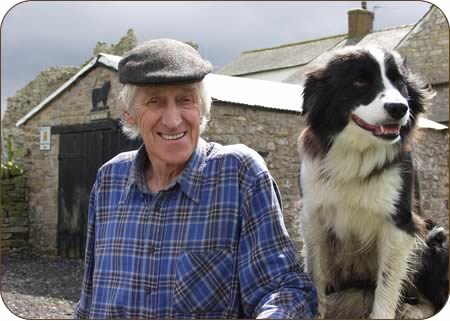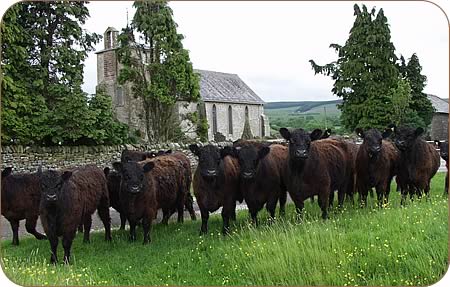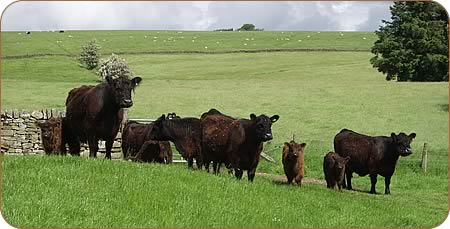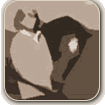Jennifer MacKenzie is an agricultural photo journalist with almost 30 year's experience. Operating from her base in Cumbria, Jennifer undertakes mainly industry-related freelance writing and photography.
Galloways are in the blood for Graham
 |
Galloway cattle have been bred by three generations of Graham Noble's family at Bewcastle in rugged North Cumbria.
The Demesne pedigree Galloway prefix dates back to the turn of the century and cattle have been bred by the Noble family since the late 1800s.
Bloodlines of the majority of the herd can be traced back to the early cattle which founded the herd.
Graham Noble has been farming the 220-acre Demesne Farm next to Bewcastle's historic church and cross since 1945 and he has had no inclination to change from the traditional breed which forms part of the landscape in this picturesque corner of the county.
Visitors to Bewcastle drive alongside his cattle on an unfenced road – something which posed a huge problem during foot and mouth year, however, miraculously all but 20 cattle which were away wintered inside survived although with the farm's sheep were lost in the cull.
 |
“I was brought up with Galloways – they are in the blood – and I haven't gone bankrupt with them yet but farming is not all about money,” said Mr Noble.
While he has nothing against continental cattle he has stuck to his “easy-care” Galloways.
“If you can't farm something you like you may as well have a different job,” he maintains.
He has also steered clear of introducing Canadian Galloway genetics into his herd, preferring to breed the smaller, traditional animal.
 |
“Galloways are predominantly a heifer breed and our main customers are the Blue-Grey breeders who sometimes are worried that we may be losing some of the characteristics of the original Galloways.
“I want to breed a Galloway with a good skin to withstand the weather and with conformation, good legs, but the most important thing is for them to have good feet.
“There is a trend for some breeders to feed their cattle too well and this possibly leads to poor feet which are no good to the hill man.
“These are cattle that are bred to go out on the hill and the man who buys them is not expecting to carry feed to them. We have got to try to maintain their hardiness.”
Bulls are sold mainly in Castle Douglas either in October or February 15 months to two years old. He has had top prices at the sales with Demesne Charlie, which sold for 6,000gns and Demesne Davie which made 5,500gns. Buyers come from as far afield as Devon and Cornwall.
As Mr Noble has recently been cutting back on cow numbers more females have been sold through Carlisle.
They are sold at between two and two and a half years old, making around 800gns a head.
Bullocks are in demand when sold store because of the increasing trend towards rearing traditional b beef. They are either sold privately and finished in a marketing scheme or they are sold through the ring at Longtown where last year at two years old they sold to a top price of £600 a head.
The herd calves all the year round, although predominantly in the spring and autumn, and the cows only receive hay and silage unless the weather is bad.
During the winter the heifers are housed and tied up in stalls in the traditional way which makes them quiet and easy to handle. They receive half a kg of concentrate a day as well as hay and silage.
Winters are long and all the cattle are housed from December to May but they need very little keep.
“In my view, hill farmers don't want a 600kg cow when they can keep a 500kg one – the bigger the cow the more keep she takes over the winter.
“I once kept a pedigree continental cow and she ate twice as much as the Galloways,” said Mr Noble.
The cows calve easily and visits by the vet for calvings are a rarity. The current stock bull is the four year old Hunter of Kilnstown, bought in during foot and mouth year from neighbouring breeders, the Waugh family.

